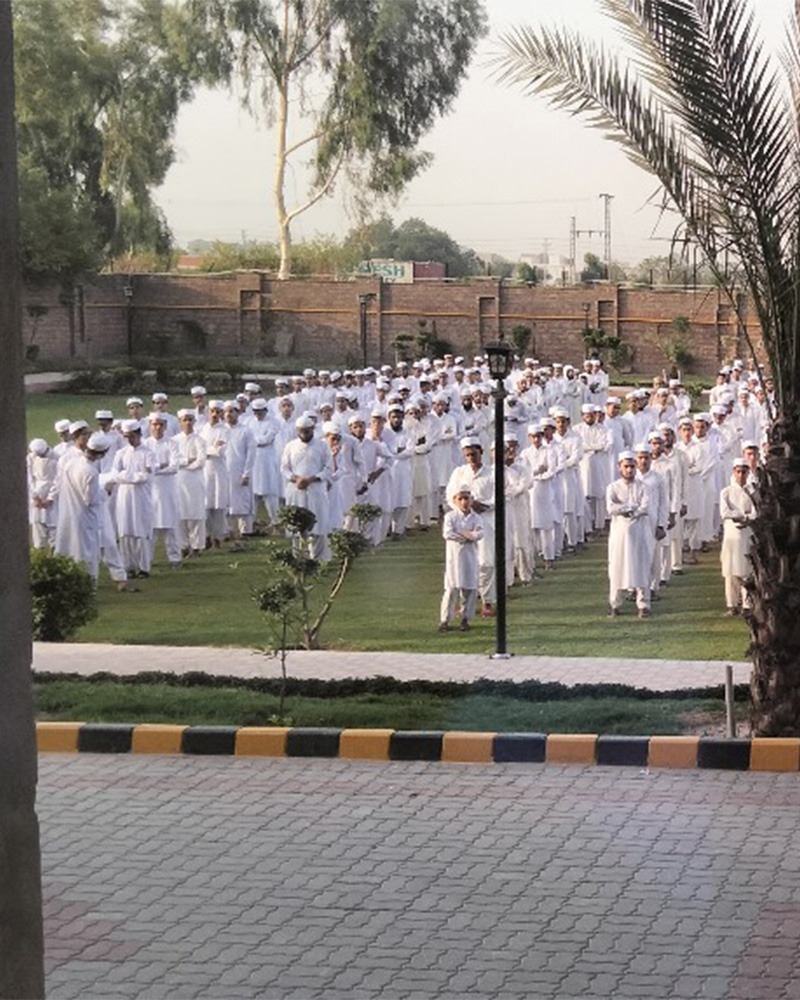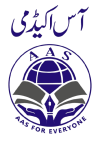Dars-e-Nizami (Aalim Course)
Department of Dars-e-Nizami (Traditional Islamic Studies Program)
The teaching of religious sciences has been a continuous tradition since the Prophetic era (peace be upon him). In the Indian subcontinent, the curriculum that has been systematized for the teaching of Islamic sciences and the preparation of scholars is widely known as Dars-e-Nizami.
At AAS Academy, this curriculum is taught with the benefit of valuable scholarly revisions and contemporary enhancements introduced by renowned scholars. The aim of the Dars-e-Nizami program is to produce scholars who combine knowledge with piety, and who can guide people toward success in both this world and the Hereafter.
Distinctive Features of the Dars-e-Nizami Program
Along with the traditional Dars-e-Nizami coursework, AAS Academy offers a variety of supplementary academic and co-curricular activities to enhance students’ personal and intellectual growth, including:
- Training in public speakingin Urdu, Arabic, and English.
- Organization of literary gatheringsat both institutional and departmental levels.
- Speech and writing competitions, with prizes for outstanding participants.
- Qira’at and Adhan competitionsto promote proficiency in recitation.
- Essay writing and magazine publicationas part of practical learning.
- Computer literacy classesfor senior-level students.
- Sports competitions and activitiesfor physical development.
- Educational, spiritual, and recreational tripsto broaden learning experiences.
- Practical sessions of Qur’an and Hadith lessonsfor higher-level students.
- Character-building and personality development programsfeaturing special lectures.
- Spiritual gatherings (Majalis of Dhikr)and training sessions for moral refinement.
- Memorization of forty selected Hadithsby students of each class.
Language of Instruction
- The initial levelsof Dars-e-Nizami (from Tamheedi to Darja Thalithah) are taught in Arabic, and this phase of the program is known as “Al-Maʿhad al-ʿArabiyyah” (Arabic Institute).
- From Darja Rabiʿahup to Dawrah-e-Hadith, the medium of instruction is Urdu.
Admission Process
Students who meet the basic eligibility criteria are required to fill out an admission form.
After submission, applicants appear in a written examination. Those who pass are invited for an oral test, the date of which is announced a few days in advance.
Candidates who successfully clear both stages are then called for a final interview before the Principal of AAS Academy, where their overall aptitude and readiness are assessed. Admission is finalized upon the approval of the Amir of AAS Academy.

Department of Tamhidi Class
Embark on a transformative journey of linguistic and spiritual growth with our Tamhidi class, expertly designed to introduce students to the fundamentals of the Arabic language and Islamic knowledge. This foundational program lays the groundwork for advanced studies, fostering a deep understanding of the Quran and the Arabic language. Our Tamhidi class is the perfect starting point for students seeking a comprehensive Islamic education, blending traditional values with modern teaching methods.
Admission Test for Tamhidi Class
To enroll in the Tamhidi class, students must pass an admission test that assesses their knowledge in subjects typically covered at the matriculation level.
Key Features of the Tamhidi Class
The Tamhidi class, designed to teach Arabic to beginner students, emphasizes the four core language skills:
- Reading (Qira’ah)
- Writing (Kitabah)
- Listening (Istima’)
- Speaking (Tahaaduth)
To achieve this, we utilize:
- Arabic-speaking environment:
Immersive Arabic-speaking culture. - Dialogues and Discussions
Structured conversations and Q&A. - Listening to Arabic Speeches
Students listen to renowned Arabic speakers. - Solving Arabic Magazines
Reading and comprehension exercises. - Quranic Arabic Course:
Understanding Arabic through the Quran. - Arabic Composition and Writing
Essay writing practice. - Calligraphy:
Training in beautiful handwriting.
Tamhidi Class Curriculum
- Al-Arabiyyah lil-Naashe’een (Four volumes).
- Duroos al-Lugha al-Arabiyyah (Complete).
- Al-Kitab al-Asasi lil-Lugha al-Arabiyyah.
- Qurani Arabic (Complete).
Admission to Higher Levels of Ma’had
Generally, new admissions are not accepted into higher levels. However, exceptions are made for highly competent students who can comprehend lessons in Arabic.
Basic Admission Requirements for Higher Levels
The procedure for new admissions from Darjah Ula to Dora-e-Hadith requires:
- Certificate of verification from the previous institution.
- Academic transcript of the previous grades.
- Proof of distinction in the previous grade.
- Copy of CNIC (identity card) or B-form along with the parent’s CNIC copy.
- Two passport-sized photographs.
Important Notes:
- To advance from Tamhidi to Darjah Ula, students must score 85% marks.
- Admission to Darjah Saniah to Darjah Sadisah requires a minimum of 80% marks.
- Admission to Dora-e-Hadith or Darjah Sabiah necessitates at least 70% marks.
